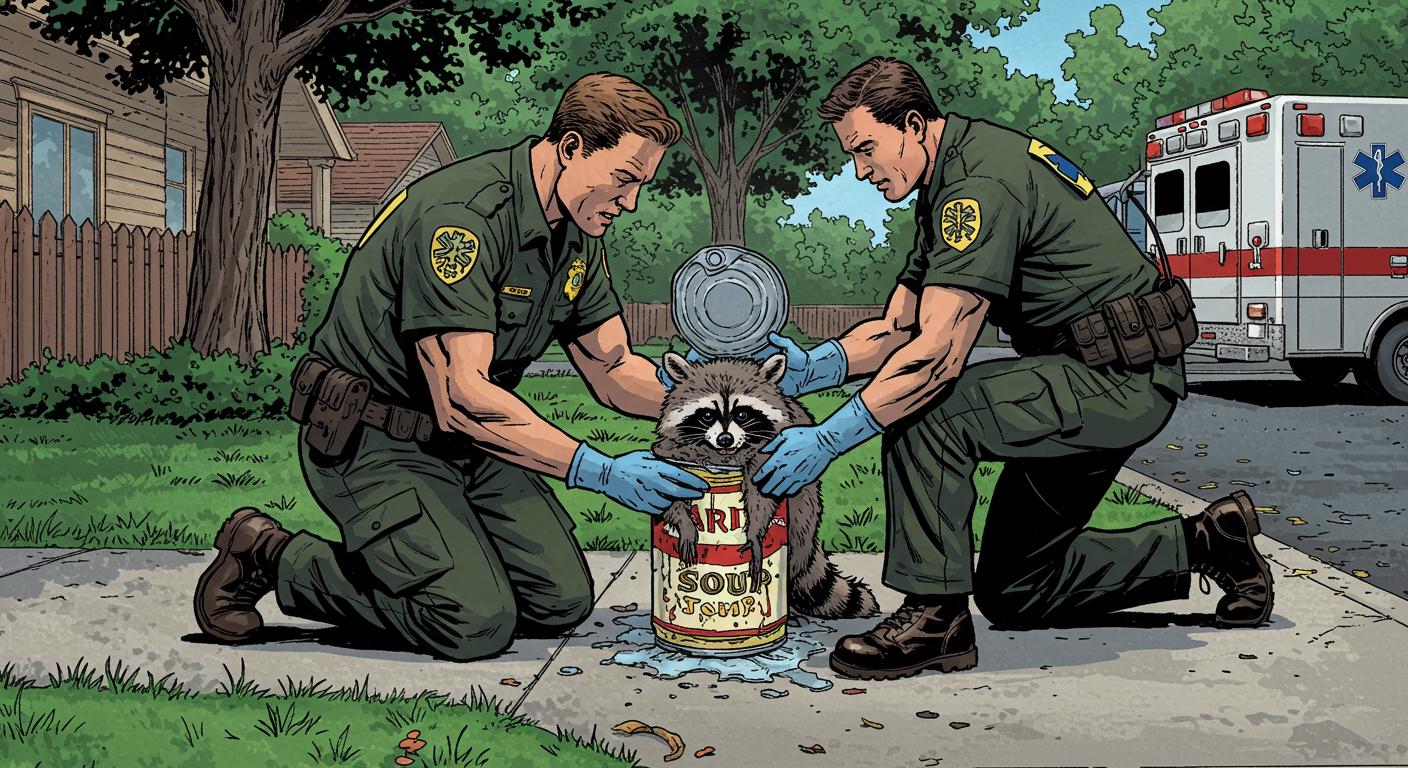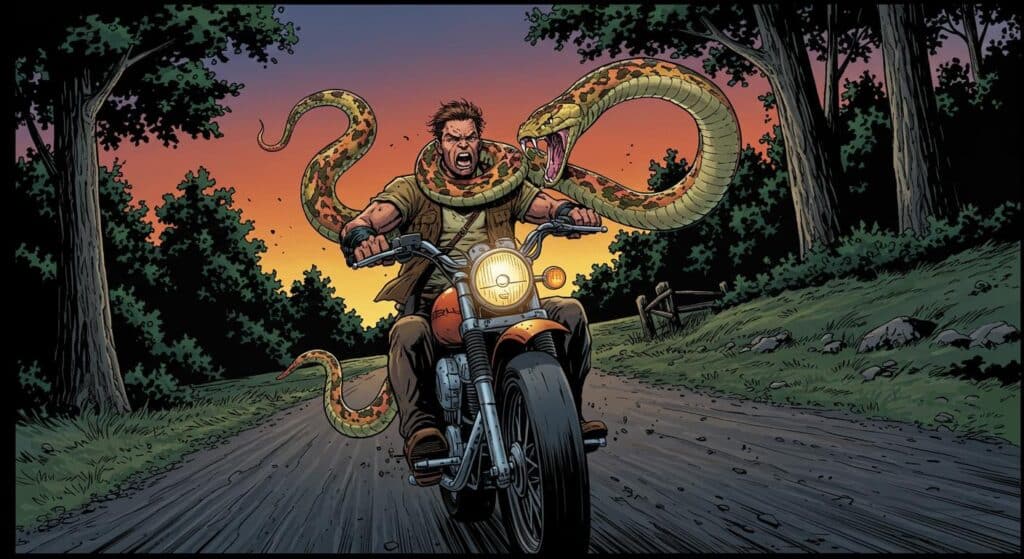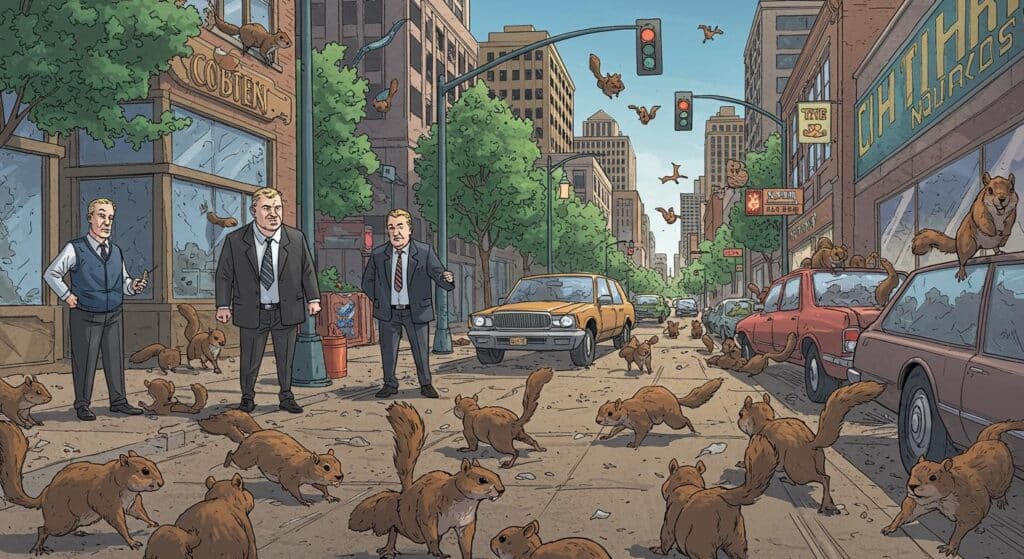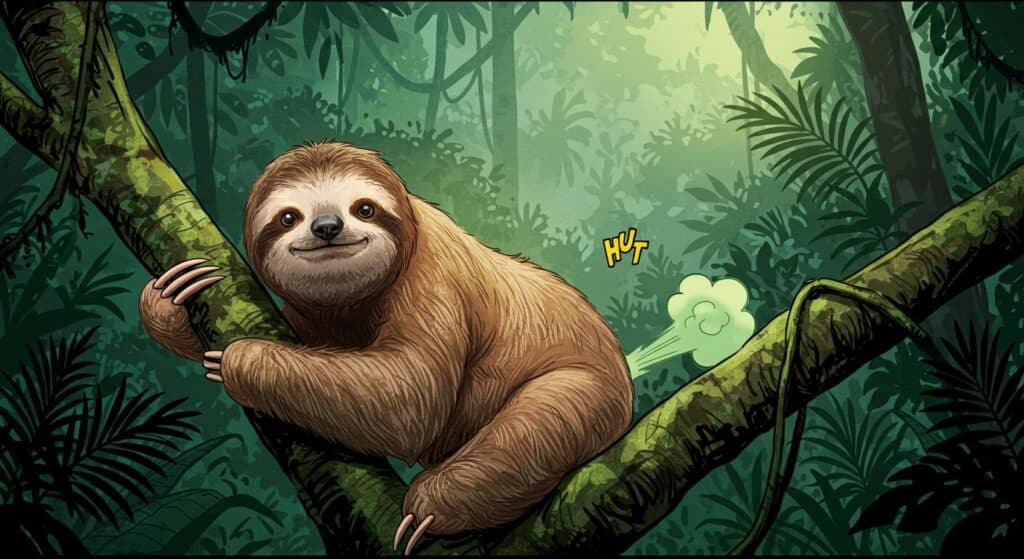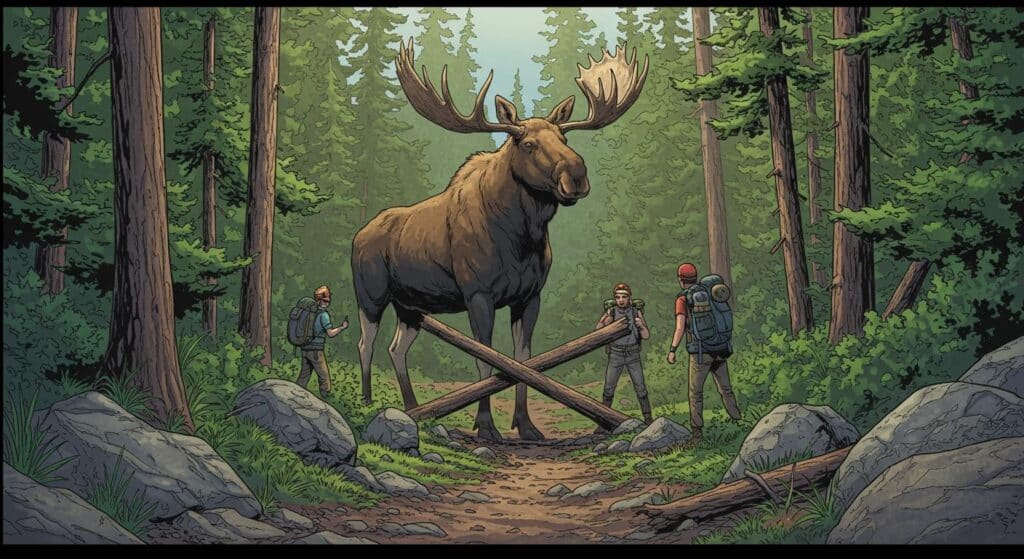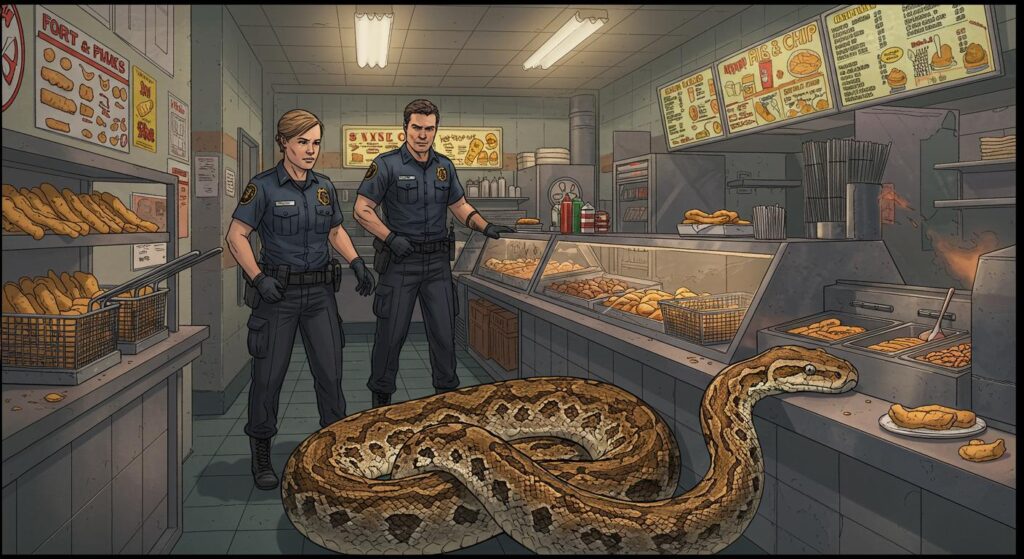It’s a tale as old as leftovers: the irresistible lure of an empty soup can, the hopeful forager’s undoing, and—at least this time—a surprisingly dramatic escape, thanks to the quick intervention of some paramedics and the proper use of ambulance-grade hardware. UPI reports that in Little Rock, Arkansas, a raccoon’s midnight snack quickly spiraled into a full-blown predicament involving its head and what appears to have once contained a generous helping of Campbell’s Chunky Soup.
The Not-So-Secret Ingredient: Chaos
How often do paramedics finish their shift only to become reluctant experts in raccoon extraction? According to UPI’s coverage, Stewart Uzzell and his colleague with the Metropolitan Emergency Medical Services (MEMS) were wrapping up their ambulance duties when an “unusual sound” drifted over the parking lot—somewhere between a clatter and a plea for help, one imagines. On investigating, they spotted the classic urban wildlife emergency: a small raccoon awkwardly running with its head firmly wedged in a soup can.
Uzzell recounted to KARK-TV how the team managed to catch the animal, only to discover that removing the can would be no simple feat. Using ambulance shears and a ring cutter—tools typically reserved for cutting rings off swollen fingers—they managed to split the can down the side, giving just enough flexibility to set their captive loose. As the outlet notes, the newly freed raccoon wasted no time in bolting for the nearest bush, offering not so much as a backward glance or a tip of the hat.
MEMS later shared on their Facebook page, as detailed by UPI, that the animal had quickly been christened “Campbell,” an arguably generous tribute to the soup brand tied to its culinary crisis. It’s hard not to imagine Campbell as a cautionary figure in some future anti-littering campaign, albeit one notably lacking self-awareness.
Paramedics, Soup, and Lessons in Urban Wildlife Diplomacy
It’s easy to gloss over how thoroughly paramedic kits have become all-purpose problem solvers—rings, cans, unpredictable critters, the works. What stands out here isn’t grand heroics, but the calm, methodical approach Uzzell’s team brought to what could easily have devolved into a slapstick scenario. In a detail highlighted by UPI, this wasn’t their usual sort of extraction, but professionalism held firm.
An interesting sidebar: while the Yahoo piece provided for this story doesn’t appear to contain new information beyond the original reporting, its inclusion underscores how quickly even the oddest local tales can bounce across digital platforms, from regional TV to UPI’s odd news desk and onward. It begs the question—how many times a week do emergency responders find themselves in unexpected roles as wildlife wranglers, or accidental side characters in a raccoon’s worst dinner party?
Of course, urban raccoons and food containers have a long, slapstick-laden shared history. As the UPI report surfaces, curiosity (and a robust sense of smell) often trumps caution for these masked foragers. Could incidents like Campbell’s misadventure nudge residents to be more careful with their recycled goods, or do these mishaps simply persist as an immutable law of city living?
Reflections from the Odd Files
One can’t help but speculate about the raccoon’s internal monologue: Did Campbell spend those critical moments re-evaluating life choices, or just plotting the next snack run? Judging from the animal’s abrupt, unceremonious dash for freedom—described in UPI’s review of the scene—reflection seems unlikely.
This saga slides comfortably alongside lost dogs on train tracks, runaway sheep, and python mix-ups, as chronicled throughout UPI’s “Odd News” section—a gentle reminder that daily oddities are far from rare. The paramedics’ spontaneous rescue, narrated so matter-of-factly for KARK-TV and detailed in the original reports, stands out less for its drama and more for the quietly humane impulse to pause and help, even when the presumed patient is small, furry, and spectacularly poor at choosing dinnerware.
So, will Campbell avoid cans in the future, or will curiosity—and hunger—win out yet again? (A safe bet for anyone familiar with raccoon ambition.) For now, at least, the city’s soup cans are once again solely the domain of humans, and the line between emergency responder and animal rescuer remains as blurry—and as oddly satisfying—as ever.

